Jim Jozwiak first picked up a trumpet in second grade. There was a local band instructor who visited area schools in a weekly rotation, and on Wednesdays he gave private lessons at St. Catherine of Alexandria, Jozwiak’s parochial school in the Chicago suburb of Oak Lawn. The lessons cost seven dollars a week.
Jozwiak didn’t know then that his childhood hobby would lead to a career first as a professional trumpet player, performing at gigs as varied as a Redd Foxx comedy show and one of President Bill Clinton’s inaugural balls, and then as an entrepreneur overseeing a staff of itinerant band teachers like the one who visited St. Catherine on Wednesdays. Band For Today, the music education company Jozwiak started with a friend 30 years ago, has taught more than 25,000 young woodwind and brass players their first tunes. When he talks to students at the beginning of the school year, he opens by saying he was once like them.

“I tell them I started as a little kid,” Jozwiak says. “I give them a little story about how I played professionally and I even got a chance to play for the president of the United States twice. And —“ he mimics the impressed murmur of a room full of children — “‘Oooooh.’ So I (tell them), ‘I’m not telling you that story to brag, even though I don’t mind bragging some,’ and they laugh. I (say), ‘I’m telling you this story because you never know where you’re going to end up when you play a musical instrument.’”
You never know where you’re going to end up when you play a musical instrument.
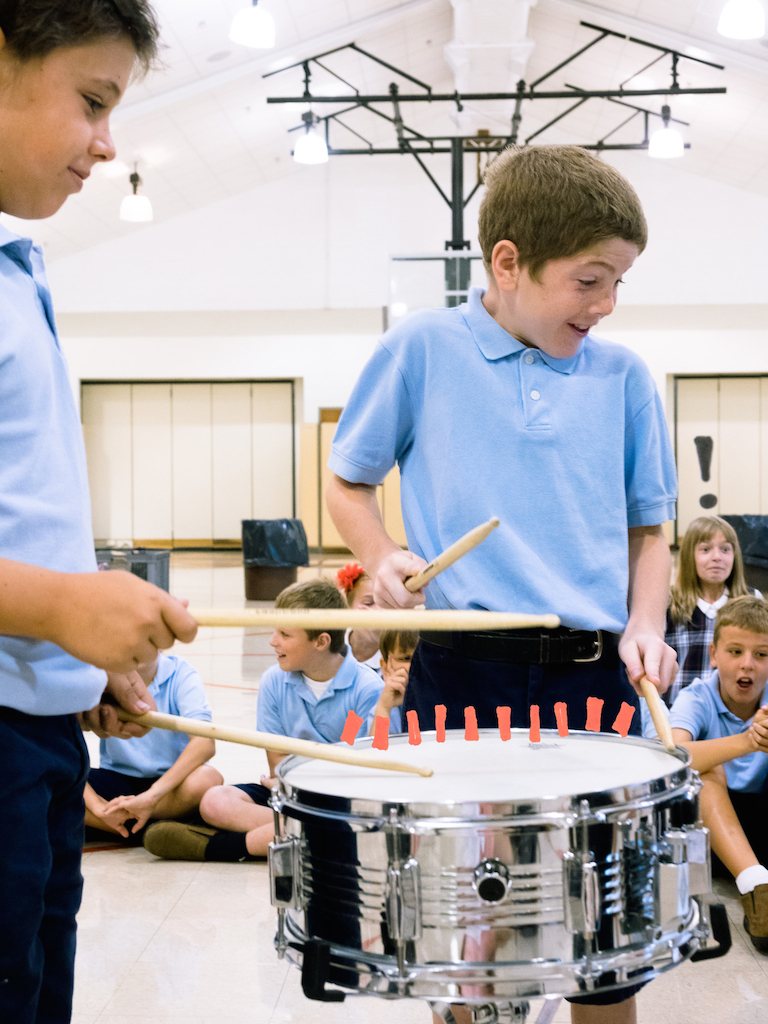
For many of Band For Today’s students, the program represents their best shot at learning an instrument or playing in an ensemble. Jozwiak steps in when arts funding gets cut or there are too few music students to bring on a full-time band director. Schools provide a classroom and let kids miss class for weekly group lessons; Band For Today supplies the teachers, curriculum and instrument rentals for six instruments: flute, clarinet, trombone, trumpet, alto saxophone and snare drum. It also offers a piano program for kindergarten through third-grade students. Aside from a few cases where schools subsidize the program, parents pay for the lessons. Band for Today’s teachers also lead after-school band rehearsals, sometimes combining players from different schools to create fuller ensembles for concerts. Jozwiak has 17 full-time band teachers who see an average of 200 students per week. Last year, he expanded beyond the Chicago area, and Band For Today now has nearly 60 schools in five states.
“The thing we like the most about it is the kids are learning,” said Larry Johnson, the principal at St. Peter School in Geneva, Ill., where about 50 students in fourth through eighth grades participate in band. “They’re learning and having fun. The second thing is it runs itself. From an administrative perspective, there’s very little we need to do. Put those things together and it’s kind of a home run for me.”
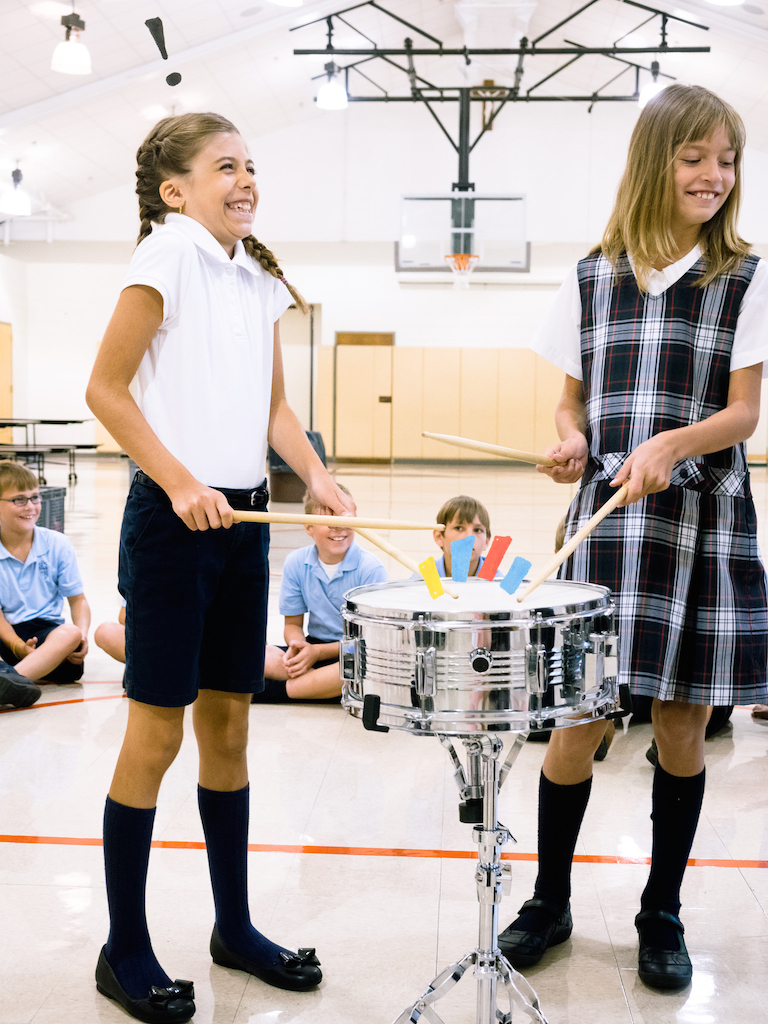
Band For Today, which is profitable and will bring in $800,000 in revenues this year, occupies an overlooked niche in the education business. When Jozwiak attends conventions packed with companies trying to sell to schools, he is “the only music guy there, any time and always.” He doesn’t have many competitors, and once schools sign up with him, they tend to stay, often beyond the tenure of the principal who originally signed the contract. Sometimes when driving past a school, he’ll picture the principal and say to himself, “I’m gonna outlast you!” as a kind of self-motivational mantra.
When Jozwiak, 60, talks about his company, one catches a glimpse of his younger self: the hard-charging musician hanging out at the now-shuttered Seminary Restaurant in Chicago, once a favorite haunt of John Dillinger. At these late-night sessions, Jozwiak and his friends opened their datebooks to compare how many gigs they had booked for the month.
“We had really strong personalities,” Jozwiak says. “I’m more mature now, but in those days, we had a really hard edge. And it wasn’t so much competitive as it was the hard edge of practicing, like you had to work really hard.”
Warming Up
Jozwiak got his first professional job at the age of 14. At that time, Chicago’s live music scene was thriving, and he had a guidance counselor who played saxophone on the side. The counselor introduced Jozwiak and a friend to rehearsal bands. These were groups of musicians who made their living through commercial gigs like recording advertising jingles, then got together at night to play big band repertoire.
Jozwiak and his friend would sit patiently in the back with their instruments. Once in a while, “by 11:30 (p.m.), some of the guys who had early sessions would want to leave, and they’d say, ‘Jim, wanna play the last set?’ And I had my trumpet there, and I’d go up and play. So that’s how you sort of got into the scene.”
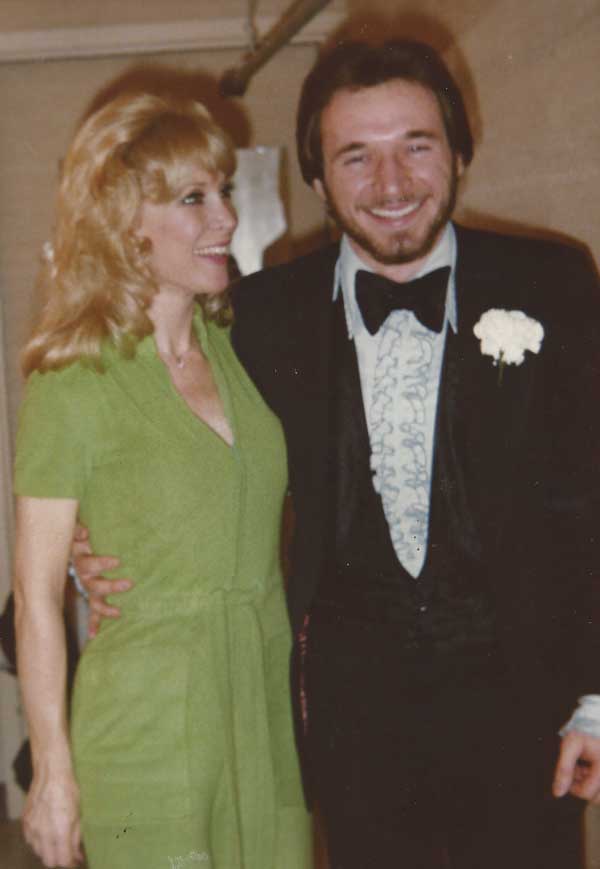
Eventually, professional players started asking Jozwiak to sub for them on gigs they couldn’t make. One of his first big breaks was filling in on New Year’s Eve at the Mill Run Theatre, a well-known local venue. The New Year’s act was comedian Redd Foxx, and Jozwiak’s gig there led to more performances at the Mill Run. Jozwiak also secured a long-term gig at the Blue Max, a lounge at the Hyatt Regency O’Hare that brought in names like Barbara Eden, Mel Torme and Lou Rawls.
Jozwiak worked steadily, gaining fluency across genres: jazz, classical, Dixieland, polka. But he never forgot an admonition from a music professor at DePaul University, a raspy-voiced trombone player named Mark McDunn who called his students “Daddy.” Jozwiak considered McDunn, who died in 2002, to be as much a business mentor as music teacher.
“He could sort of see the future with how the business was,” says Jozwiak, who left DePaul after two years to pursue his professional career. “He said, ‘Even if you did 250 gigs a year, which is a lot of gigs as a trumpet player, and they each pay a hundred bucks, you make $25,000. And that’s all you can make.’”
Jozwiak remembered McDunn’s words when, in the early 1980s, he played tennis with a trombonist friend who taught group lessons at a public school district that had recently lost its arts funding. Jozwiak was giving private lessons at the time, and his friend was making five times what he was. The two friends went into business together and found a large, untapped pool of schools needing music education, as well as young college graduates hungry for their first teaching jobs.
“In those days, not only were arts cut, but there were a million Catholic schools that didn’t have band programs,” Jozwiak says. “So we grew really fast.”
Even while building this business, both men kept taking gigs. Jozwiak played regularly at a suburban dinner theater, rushing to the kitchen phone during breaks in the weekly Wednesday matinee to call principals or teachers.
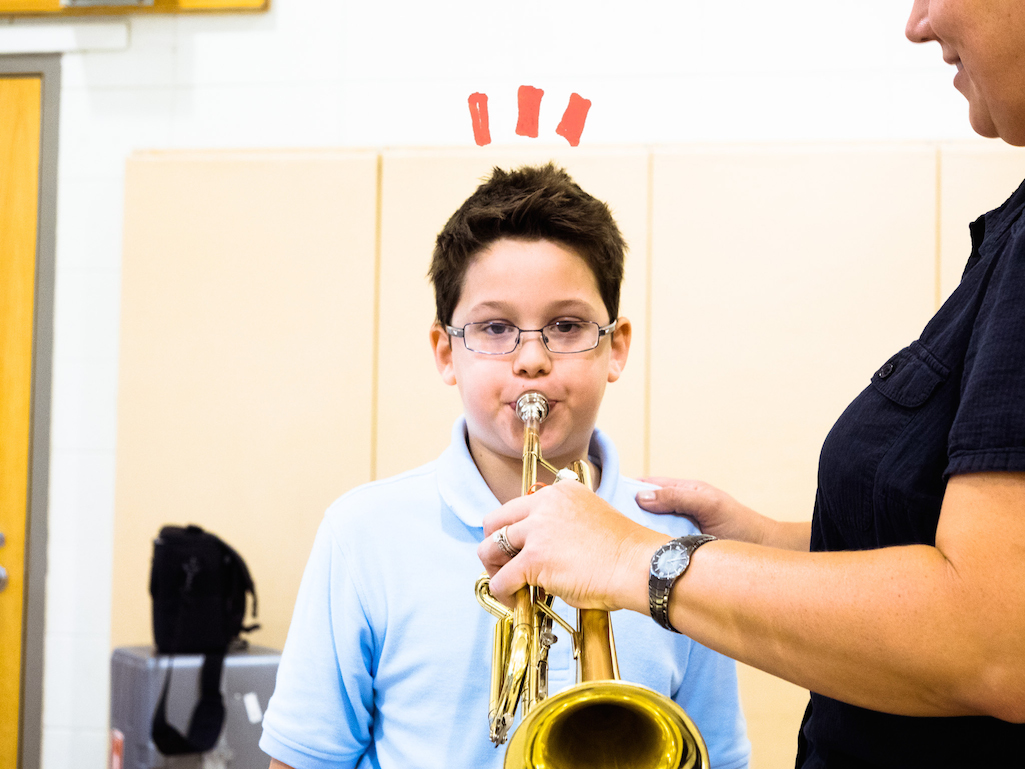
Five years into running Band For Today, the two men split, dividing the company’s schools between them. Both men’s wives had been helping with the company, and Jozwiak says his wife, Leah, and his business partner didn’t get along. Financial concerns were an additional strain, since the Jozwiaks put their house in trust to borrow money when Band For Today couldn’t get a traditional bank loan.
There were other financial lessons along the way. Early on, Jozwiak and his partner bought about $75,000 worth of instruments from a friend to rent to their students. But with a single saxophone costing around $500 and Band For Today charging a monthly rental fee of $25, it took several years to pay off each instrument — and even longer if students quit before year-end.
Jozwiak managed to pay his friend back eventually, but the process was a big financial drain. He exited the rental business and stayed out until about a decade ago, when inexpensive, Chinese-made instruments tipped the math in his favor. Today 90 percent of his instruments are paid off, so rental income provides a steady flow of cash.
“When I started the business, I was a trumpet player,” Jozwiak says. “I didn’t know anything about bankers, insurance, liability, hiring, interviewing, lines of credit, putting my house in trust to get loans.”
Going Pro
Fifteen years ago, Jozwiak quit his freelance career to focus full-time on Band For Today, which he runs out of his house in the Chicago suburb of Plainfield. Leah opened her own business, a children’s music and dance studio, around the same time. She is a singer and actress; the Jozwiaks met in a production of the musical “Nine.” The couple’s three grown children are also musicians, with the two oldest playing professionally in New York and Los Angeles and the youngest attending Berklee College of Music in Boston.
Jozwiak himself is retired. “I can’t just pick up my horn now and go play a gig. It’s this,” Jozwiak says, gripping his jaw. “It’s technique and stuff, but mostly it’s here, it’s a muscular thing.”
Now he’s all about developing his business chops. He and Leah receive coaching from Sam Beckford, a Canadian entrepreneur who advises performing arts studios on everything from marketing to pricing. Last year, Jozwiak also got pivotal advice from a fellow vendor at a schools conference in Chicago who told him about independent, commission-based education sales representatives.
“He coached me on the whole thing,” says Jozwiak, who later sent the man a gift certificate for a steak dinner to thank him. “He said be careful about giving people exclusives, think about your percentages, what you want to give them. In the time we were there, he got a call from Montana, where his rep sold this school district on twenty-thousand dollars worth of stuff.”
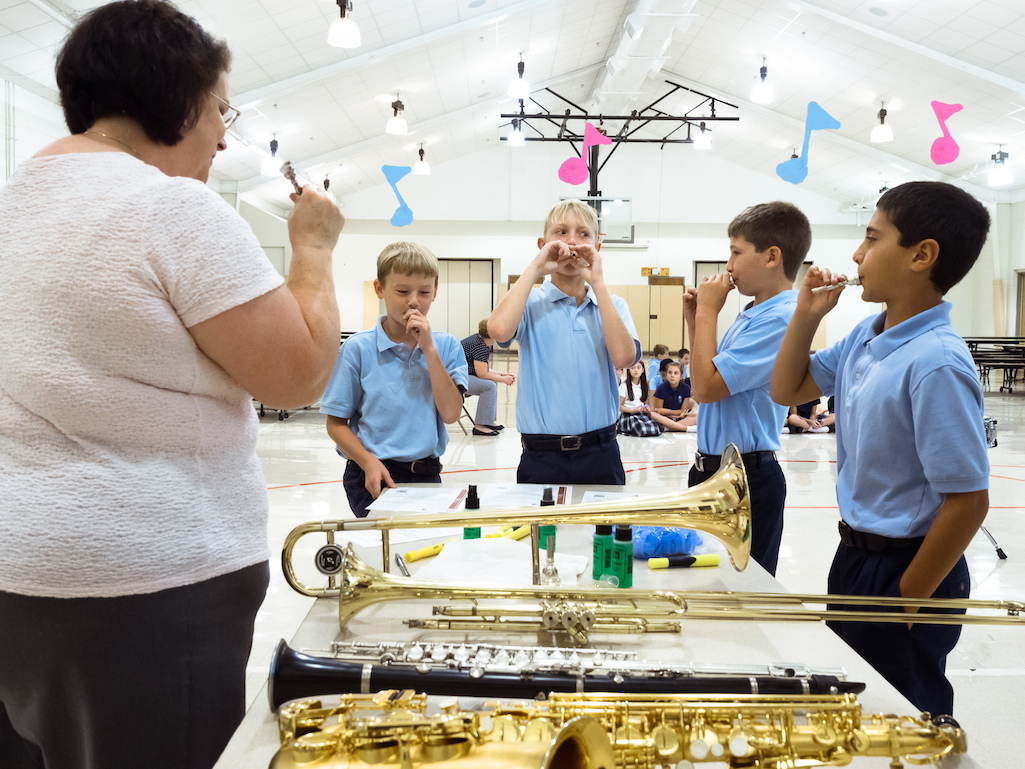
Newly enlightened and energized, Jozwiak posted a LinkedIn ad seeking independent sales representatives for Band For Today. He got a quick response from Gina Jamison, the owner of Academic Entertainment, a Washington-based company that puts on in-school assemblies. Jamison had never heard of outsourced music education but liked the concept, having worked with many schools and parent groups struggling with reduced arts funding.
Both Jamison and Jozwiak are high-energy, fast-talking entrepreneurs, and they bonded instantly. She posted information about Band For Today on her company’s website a few days after talking to him and received hundreds of inquiries within the week.
“We so get each other it’s not funny,” says Jamison, who started her business 20 years ago with a single performer. “He makes me laugh — that’s the biggest thing. We’re in intense situations sometimes and he makes me laugh.”
Even though I know my business intimately, taking it national was sort of like creating a new business.
The national expansion was stressful for Jozwiak, who had to train Jamison in selling Band For Today programs while also flying around the country to meet with principals, hire teachers and hold demonstrations for students. He didn’t feel the pressure lift until mid-2013.
“Even though I know my business intimately, taking it national was sort of like creating a new business,” he says. “And it was hard. Last year was the hardest year in 20 (years). … As we kept getting these accounts, I was smart enough to know what they call the Oprah effect. You know, you get your product on Oprah and she says, ‘Oh, this is the greatest product in the world’? That can put you out of business. … So all of a sudden, we’ve got commitments from these schools in Seattle. You’ve got to hire teachers, you’ve got to ship instruments, you’ve got to go there to recruit, you’ve got to fly there, you have to have all the printing, the pricing. You have to put those schedules online and the pricing online. It’s really, really involved. And I’m the guy. Nobody’s taking my company national but me.”

The stress of expanding has given way to excitement about his company’s future. This year, he raised his fees slightly and overhauled his online billing and scheduling systems. Jozwiak likes trying new stuff. He proudly points out his silver matte eyeglass frames from retail startup Warby Parker, even as he sheepishly acknowledges he still likes using his old AOL email account.
As a musician, Jozwiak says, “At one point, you’re the youngest guy in the band. Everybody’s gone through the youngest guy in the band thing.” Now he’s the seasoned pro, giving new generations of players their first experience with an instrument.
In schools without band programs, “Those kids would never have had the chance to hold — not even to play, just to touch an instrument,” he says. “Even if the parents can’t afford it, that’s something that has value. It has educational value and emotional value.”

